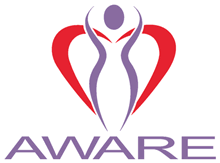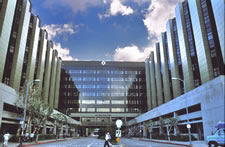
Click
here for more information about the AWARE
clinical trial (Angiogenesis in Women With
Angina Pectoris Who Are Not Candidates for
Revascularization) |
|
Q:
You recently began recruiting for the AWARE Trial
which hopes to show that the agent Generx
induces angiogenesis which can benefit
the coronary circulation to
grow
new arteries.
Dr.
Shah: Obviously we
don't
know the
answer
to
the question, “Does local angiogenic gene
therapy actually work, in terms of improving
perfusion in symptoms and, if so, how durable
is the effect from a one-time delivery of the
gene?”
These
are questions that obviously have to be addressed.
I think gene therapy or angiogenesis has had
a very tumultuous career, to say the least, with
ups and downs and a lot of promise, but more
hype than fact. So this will be the first Phase
3 trial that is going to address directly whether
local angiogenic therapy works, and if it does
work, how long does it work? I think this is
the first step in that direction – to bringing
gene transfer all the way to a Phase 3 clinical
trial. |
Q: There have been
previous studies of this angiogenetic factor
that showed
better results in women. Is this because
women have smaller arteries that they may
experience coronary artery disease
differently?
Dr. Shah:
The basis for launch of this
study in women
is, as
you
know,
the data
from
two previous trials
which showed no overall benefit, but a strong
suggestion of benefit in women. We still don't
understand
what is so different that women would respond
differently than men. I don't think we have a
full understanding.
I am a big believer that gender is not simply
small versus large. Gender may have some really
profound
implications in terms of responses to different
treatments. So I don't dismiss the idea that
this was a fluke. I think it's really quite plausible
to suggest that there may be gender differences
in the way people respond.
Q: Do you think this may be due to hormonal differences?
Dr. Shah: Well, that's one possibility,
and the other is: what else sits on that X chromosome
-- besides hormones? What else is making women
different from men? Obviously they have two X chromosomes
instead of one X chromosome. So it may go beyond
hormonal influences. There may be other genetic
bases for differential response. But, at the moment,
it's a hypothesis, and that can only be proven
or disproven with an appropriate placebo-controlled
trial.
Q: How is recruiting going?
Dr.
Shah: We’ve just put ads, and I think
we have two patients identified as potential candidates
and they're going to go through the screening process.
So we’re excited about it.
Q: There’s
a specific protocol for who is eligible --
in general
terms what types of patients are being enrolled?
Dr. Shah: These are
women with angina, who are having angina or angina-like
symptoms despite at
least two classes of medications, and are not deemed
candidates for mechanical revascularization with
either PCI or surgery. So that's the bottom line
in terms of what kind of patients, and the primary
endpoint is obviously improvement in perfusion
and exercise tolerance.
Q: How does this
fit together with other anti-anginal therapies?
To me, one of the most
interesting results
of last year's COURAGE Trial was the fact
that 25% of the patients still had some angina,
whether
they had angioplasty or medical therapy.
Dr. Shah:
Angina continues to plague patients, and for some
of the women, it may be microvascular
disease, for others it's going to be diffuse disease
and total occlusions that are not amenable to revascularization,
or lesions that are not really good candidates
for revascularization, or a combination of all
of these. At the present time, in absence of candidacies
for PCI or CABG, the options for patients with
continuing angina are standard medications which
is calcium channel blockers, nitrate beta-blockers,
and on top of that renolazine, as one of the newer
anti-anginal drugs, Enhanced External CounterPulsation,
or EECP, and spinal chord stimulation -- that is
being used I think more in Europe than in this country
for relief of refractory angina. And some places
still believe in laser or Trans Myocardial Laser
Revascularization although the results have been
both up and down. So those are the kinds of options
that are currently available. And then obviously
the patient in this trial has a novel approach
to improve blood flow.
Q: Angiogenetic therapies
have been a long time coming. The late Jeffrey
Isner was working with this area over
a decade ago. What takes such a long
time for these therapies to be tested?
Dr. Shah:
Well there were several negative studies using
VEGF and other things. I
think the critical
studies had gotten started prematurely before the
science had been worked out. And it turned out
that to really have good angiogenic response, you
need to create mature blood vessels, not leaky
capillaries, and when you create leaky capillaries
you don't get sustained benefit. And that's was
happening with VEGF.
The idea is that with
FGF you may get more mature blood vessels, similar
to collaterals. And I think it took some time for
science to basically catch up until the studies
were done with FGF. And although the overall field
has not moved very fast, this is the first tangible
really progress in years that we have seen in the
field. And who knows? We don't know whether this
is going to work or not work, and the jury is still
out.

Cedars-Sinai
Medical Center
Los Angeles, CA |
|
The entire
field of gene therapy has had fits and starts,
and it has not been has easy to translate the
simplistic concepts into practical usable treatment,
for any disease for that matter. The promise
of gene therapy has not been fully realized,
although I remain convinced that at the appropriate
time, when we have figured out the best vector,
the best delivery, and how to address to the
immune response, then I think we may have a
good platform. But that's what it takes. Look
how long it took to finally get our LDL-lowering
therapy right.
I think the AWARE trial is exciting because
this is the first gene therapy trial in cardiac
disease that has advanced to Phase
3. |
Q: Thank you for
your time Dr. Shah. Prospective patients interested
in enrolling in the AWARE trial at Cedars-Sinai
(one of an estimated 50 centers participating
nationwide) can call
1-800-CEDARS1 (1-800-233-2771) for more information
about
the study and eligibility.
For more information,
visit
the AWARE study website. |